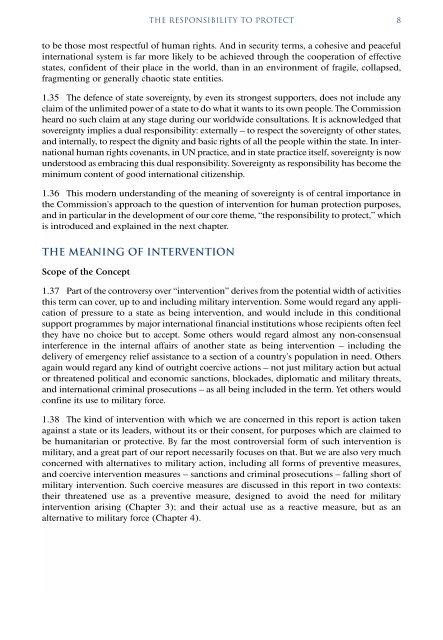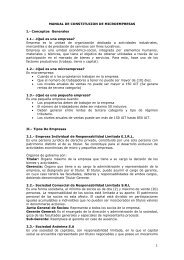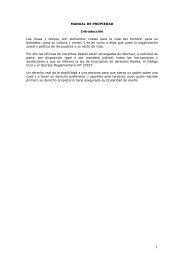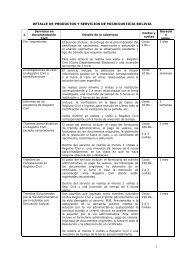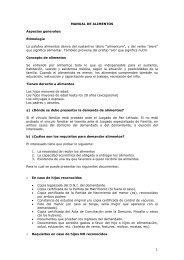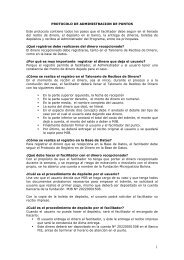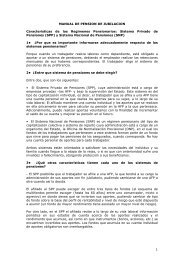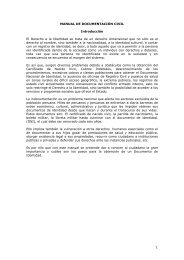ICISS report - International Coalition for the Responsibility to Protect
ICISS report - International Coalition for the Responsibility to Protect
ICISS report - International Coalition for the Responsibility to Protect
Create successful ePaper yourself
Turn your PDF publications into a flip-book with our unique Google optimized e-Paper software.
The <strong>Responsibility</strong> <strong>to</strong> <strong>Protect</strong> 8<br />
<strong>to</strong> be those most respectful of human rights. And in security terms, a cohesive and peaceful<br />
international system is far more likely <strong>to</strong> be achieved through <strong>the</strong> cooperation of effective<br />
states, confident of <strong>the</strong>ir place in <strong>the</strong> world, than in an environment of fragile, collapsed,<br />
fragmenting or generally chaotic state entities.<br />
1.35 The defence of state sovereignty, by even its strongest supporters, does not include any<br />
claim of <strong>the</strong> unlimited power of a state <strong>to</strong> do what it wants <strong>to</strong> its own people. The Commission<br />
heard no such claim at any stage during our worldwide consultations. It is acknowledged that<br />
sovereignty implies a dual responsibility: externally – <strong>to</strong> respect <strong>the</strong> sovereignty of o<strong>the</strong>r states,<br />
and internally, <strong>to</strong> respect <strong>the</strong> dignity and basic rights of all <strong>the</strong> people within <strong>the</strong> state. In international<br />
human rights covenants, in UN practice, and in state practice itself, sovereignty is now<br />
unders<strong>to</strong>od as embracing this dual responsibility. Sovereignty as responsibility has become <strong>the</strong><br />
minimum content of good international citizenship.<br />
1.36 This modern understanding of <strong>the</strong> meaning of sovereignty is of central importance in<br />
<strong>the</strong> Commission’s approach <strong>to</strong> <strong>the</strong> question of intervention <strong>for</strong> human protection purposes,<br />
and in particular in <strong>the</strong> development of our core <strong>the</strong>me, “<strong>the</strong> responsibility <strong>to</strong> protect,” which<br />
is introduced and explained in <strong>the</strong> next chapter.<br />
THE MEANING OF INTERVENTION<br />
Scope of <strong>the</strong> Concept<br />
1.37 Part of <strong>the</strong> controversy over “intervention” derives from <strong>the</strong> potential width of activities<br />
this term can cover, up <strong>to</strong> and including military intervention. Some would regard any application<br />
of pressure <strong>to</strong> a state as being intervention, and would include in this conditional<br />
support programmes by major international financial institutions whose recipients often feel<br />
<strong>the</strong>y have no choice but <strong>to</strong> accept. Some o<strong>the</strong>rs would regard almost any non-consensual<br />
interference in <strong>the</strong> internal affairs of ano<strong>the</strong>r state as being intervention – including <strong>the</strong><br />
delivery of emergency relief assistance <strong>to</strong> a section of a country’s population in need. O<strong>the</strong>rs<br />
again would regard any kind of outright coercive actions – not just military action but actual<br />
or threatened political and economic sanctions, blockades, diplomatic and military threats,<br />
and international criminal prosecutions – as all being included in <strong>the</strong> term. Yet o<strong>the</strong>rs would<br />
confine its use <strong>to</strong> military <strong>for</strong>ce.<br />
1.38 The kind of intervention with which we are concerned in this <strong>report</strong> is action taken<br />
against a state or its leaders, without its or <strong>the</strong>ir consent, <strong>for</strong> purposes which are claimed <strong>to</strong><br />
be humanitarian or protective. By far <strong>the</strong> most controversial <strong>for</strong>m of such intervention is<br />
military, and a great part of our <strong>report</strong> necessarily focuses on that. But we are also very much<br />
concerned with alternatives <strong>to</strong> military action, including all <strong>for</strong>ms of preventive measures,<br />
and coercive intervention measures – sanctions and criminal prosecutions – falling short of<br />
military intervention. Such coercive measures are discussed in this <strong>report</strong> in two contexts:<br />
<strong>the</strong>ir threatened use as a preventive measure, designed <strong>to</strong> avoid <strong>the</strong> need <strong>for</strong> military<br />
intervention arising (Chapter 3); and <strong>the</strong>ir actual use as a reactive measure, but as an<br />
alternative <strong>to</strong> military <strong>for</strong>ce (Chapter 4).


